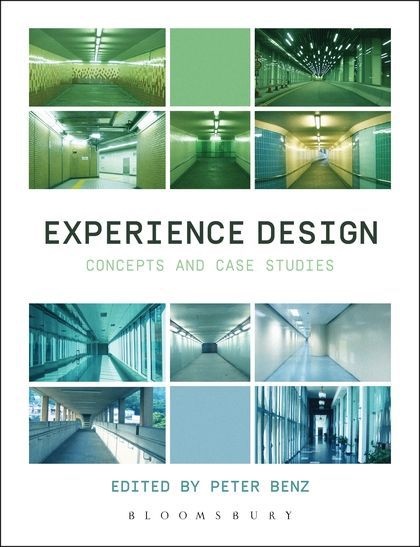Read more
How can we design better experiences? Experience Design brings together leading international scholars to provide a cross-section of critical thinking and professional practice within this emerging field. Contributors writing from theoretical, empirical and applied design perspectives address the meaning of ''experience''; draw on case studies to explore ways in which specific ''experiences'' can be designed; examine which methodologies and practices are employed in this process; and consider how experience design interrelates with other academic and professional disciplines.Chapters are grouped into thematic sections addressing positions, objectives and environments, and interactions and performances, with individual case studies addressing a wide range of experiences, including urban spaces, the hospital patient, museum visitors, mobile phone users, and music festivaland restaurant goers.>
List of contents
Foreword & Acknowledgements, Peter Benz, Hong Kong Baptist University, Hong Kong
Editorial Introduction, Matthew Turner, Napier University, UK
I. Positions
I.1 Fundamental Aspects of Human Experience: A Phenomeno(logical) Explanation, Ian Coxon, University of Southern Denmark, Denmark
I.2 Experience as Excursion: A Note towards a Metaphysics of Design Thinking, Connie Svabo, Roskilde University, Denmark and Michael Shanks, Stanford University, USA
I.3 How Much Time and Effort Does it Take for Experience Design to Unfold? Catherine Elsen, Massachusetts Institute of Technology, USA and Pierre Leclercq, Unioversity of Liege, Belgium
I.4 Experiential Equality and Digital Discrimination, Linda Leung, University of Technology Sydney, Australia
II. Objects & Environments
II.1 Narrativity of Object Interaction Experiences: A Framework for Designing Products as Narrative Experiences, Silvia Grimaldi, University of the Arts, UK
II.2 Centers of Experience: Bodies and Objects in Today's Museums , Xavier Acarin, Art Producer, USA and Barbara Adams, New School, USA
II.3 Space, Experience, Identity & Meaning, Peter Benz, Hong Kong Baptist University, Hong Kong
II.4 Four Themes to (Phenomenologically) Understand Contemporary Urban Spaces, Lakshmi Priya Rajendran, Stephen Walker and Rosie Parnell, Sheffield University, UK
III. Interactions & Performances
III.1 Co-Producing a Festival Experience: A Socio-Material Understanding of Experience Design, Sara Malou Strandvad, Roskilde University, Denmark
III.2 CurioUs: The Logic of Performance, Amy Findeiss, Eulani Labay and Kelly Tierney, Independent Scholar, USA
III.3 Designing for a Better Patient Experience, Gretchen C. Rinnert, Kent State University, USA
III.4 Designing Mobile User Experiences: A Framework for a Design Methodology, Claus Østergaard, Aalborg University, Denmark
III.5 Suspending Reality: A Disruptive Approach to Designing Transformative Experiences, Tara Mullaney, Umean University, Sweden
III.6 Understanding and Designing the Meal Experience and its Psychological Consequences, Werner Sommer, Humboldt-University Berlin, Germany, Felix Bröcker, Max-Planck-Institut für Polymerforschung, Germany and Manuel Martín-Loeches, Universidad Complutense, Spain, Annekathrin Schacht, University of Göttingen, Germany and Birgit Stürmer, International Psychoanalytic University Berlin, Germany
Report
Peter Benz's book brings us closer to the essence of experience design. Benz approaches the subject with a deep insight, focusing on the core value of experience itself, not only as part of the commercial system. Bringing multiple perspectives and approaches to bear, the volume analyses how to create new user experiences through the presentation of diverse case studies. For those wishing to learn about experience design, this is a forward-thinking, inspirational, and must-read reference. YANG Wenqing, Loe Design and Tongji University, China

